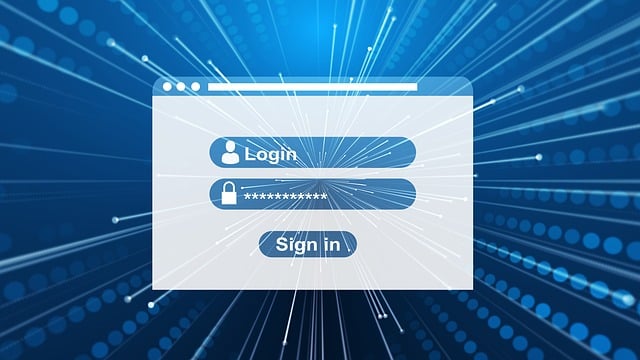The relationship between driving licenses and vehicles is vital for motor vehicle regulation. Registering a vehicle links it to its licensed driver(s), tracking ownership and ensuring safety standards. Selecting appropriate vehicle registration tailored to your needs (personal, business, EV) is essential, with specific guidelines for non-residents and electric vehicles. Prioritizing safety through regular maintenance and proper documentation ensures efficient transactions and enhanced road safety. Understanding local select vehicle registration procedures is crucial for navigating complexities, especially for non-resident license holders.
In today’s world, linking your driving license to a vehicle is a crucial step towards responsible vehicle ownership. This comprehensive guide delves into the essential connection between licenses and vehicles, offering insights on choosing the right vehicle for your license type. We’ll navigate the registration process, explore legal requirements, discuss safety considerations, and provide solutions for common challenges. By understanding these aspects, you can ensure a smooth transition to vehicle ownership while adhering to legal standards. Remember, selecting the right vehicle and completing proper registration are key steps in responsible vehicle management.
- Understanding the Link Between Licenses and Vehicles
- Choosing the Right Vehicle for Your License Type
- Registration Process: Select and Prepare Documents
- Legal Requirements for Vehicle Ownership and Operation
- Safety Considerations for Vehicle-License Compliance
- Common Challenges and How to Overcome Them
Understanding the Link Between Licenses and Vehicles

In many jurisdictions, there’s a clear and vital connection between driving licenses and vehicles — both are essential components of motor vehicle regulation. Understanding this link is crucial when it comes to ensuring safe roads and responsible vehicle ownership. A driver’s license serves as legal permission to operate a motor vehicle on public roads, while registering a vehicle involves securing official documentation that verifies its existence and compliance with local laws.
When you select a vehicle for personal or business use — whether it’s registering a new business vehicle like a truck for deliveries, a campervan for recreational trips, or even a standard car — the process of registration inherently links that specific vehicle to its licensed driver(s). This symbiotic relationship is designed to track vehicle ownership and driving privileges, facilitating responsible vehicle management and ensuring that all drivers meet necessary safety standards.
Choosing the Right Vehicle for Your License Type

When linking your driving license to a vehicle, it’s crucial to choose the right one that aligns with your needs and license type. Different vehicles have distinct requirements and regulations, especially when it comes to registration. For instance, non-resident vehicle registration guidelines may vary significantly from those for local residents, with specific considerations for temporary or long-term visitors. Always check the vehicle registration status online for up-to-date information.
Additionally, electric vehicle (EV) registration benefits can make the process smoother and more cost-effective. EV owners often enjoy reduced fees, faster processing times, and even certain tax advantages. These incentives not only encourage the adoption of cleaner transportation but also streamline the administrative aspects associated with vehicle registration.
Registration Process: Select and Prepare Documents

When initiating the link driving license to your vehicle, the initial step involves carefully selecting vehicle registration options that align with your needs. This process necessitates a thorough understanding of local regulations and your specific vehicle type – whether it’s a personal car, affordable auto registration services, a commercial fleet, or even a recreational vehicle. Start by gathering essential documents like proof of ownership, valid driver’s license, and necessary insurance papers.
For businesses looking to registering a business fleet, this step becomes even more critical as it involves meticulous record-keeping and compliance with specific industry standards. Consider seeking guidance from professionals who offer recreational vehicle registration tips to ensure the process is seamless and accurate, leaving you to focus on enjoying your journey ahead.
Legal Requirements for Vehicle Ownership and Operation

Before you can legally drive a vehicle, there are specific legal requirements that must be met. One of the fundamental aspects is obtaining a valid driver’s license, which authorizes you to operate a motor vehicle on public roads. This process typically involves passing a written test and a practical driving exam to demonstrate your proficiency behind the wheel.
Additionally, selecting the appropriate Vehicle Registration is crucial. In most jurisdictions, vehicles must be registered with local vehicle registration agencies to legally operate on public highways. This includes completing necessary documentation and providing proof of insurance. Students might be eligible for a student discount for vehicle registration, making this process more affordable during their learning period. For imported cars, the registration process may differ slightly, requiring additional steps such as fulfilling customs regulations and ensuring compliance with local road laws.
Safety Considerations for Vehicle-License Compliance

When linking a driving license to a vehicle through registration, safety considerations are paramount. Proper vehicle maintenance and regular inspections ensure that both the car and its operator meet the required standards for roadworthiness. This includes checks on brakes, tires, lighting systems, and other critical components to prevent accidents and ensure a secure driving experience.
Choosing the best time to renew vehicle registration, such as during less busy periods, can streamline the process and make it fast and easy. Additionally, when selling a car, ensuring that the registration is up-to-date is essential. Proper documentation, including a valid license and current registration, not only facilitates the transaction but also emphasizes compliance with local regulations, enhancing overall safety on the roads.
Common Challenges and How to Overcome Them

Linking a driving license to a vehicle is often fraught with challenges, especially for non-residents navigating unfamiliar bureaucratic processes. One common hurdle is understanding the select vehicle registration procedures unique to each region. Different countries and states have distinct rules regarding who can register a vehicle and where. Non-residents may face additional hurdles, such as providing proof of insurance and residency, which can be complex and time-consuming.
To overcome these challenges, it’s crucial to familiarize yourself with the non-resident vehicle registration guidelines specific to your location. Many jurisdictions offer online resources explaining detailed steps for foreign license holders looking to register a vehicle. For instance, if you’re planning to purchase a motorcycle, understanding the motorcycle registration procedures can streamline the process. Additionally, when transferring car registration ownership, ensuring proper documentation and adherence to local laws is essential to avoid delays or legal complications.
Linking your driving license to a vehicle is a crucial step in ensuring legal and safe operation on the road. By understanding the relationship between licenses and vehicles, choosing the right mode of transport for your license type, and navigating the registration process with the necessary documents, you’re well on your way to responsible vehicle ownership. Always stay informed about legal requirements and safety considerations to maintain compliance. Should challenges arise, knowing how to overcome them will ensure a smooth journey. Remember, selecting the right vehicle and completing registration are vital components of being a responsible driver.
